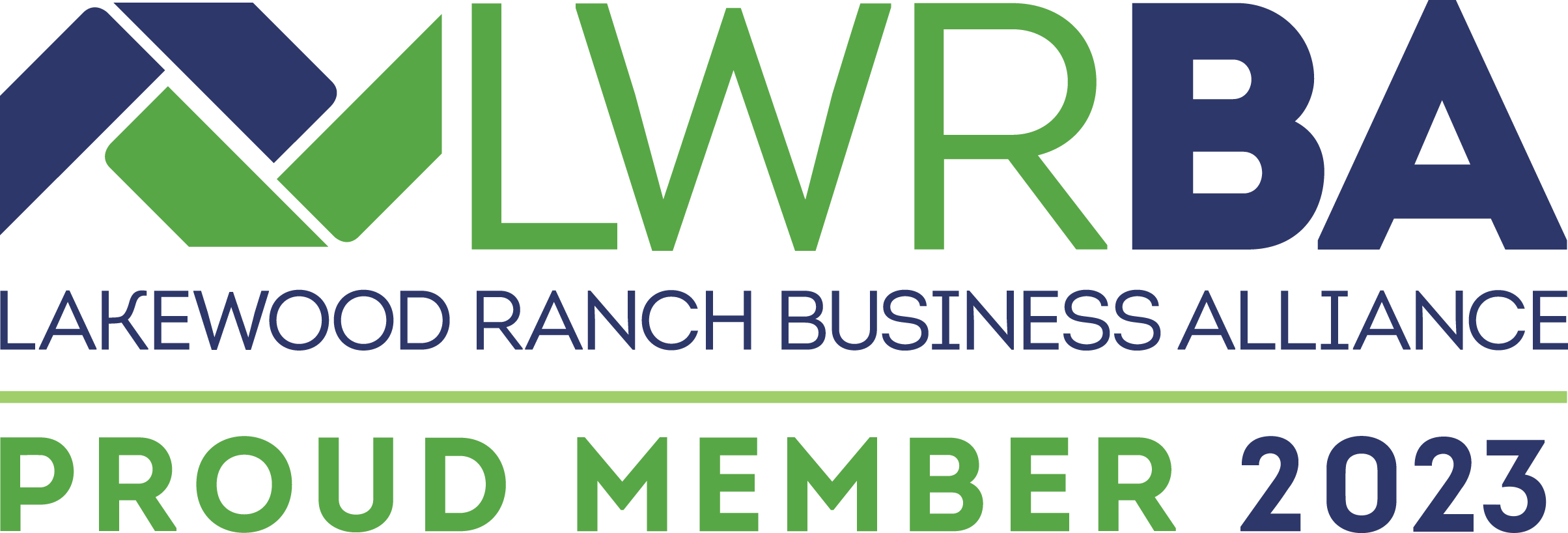Veterans Disability Benefits Attorney
veterans disability benefits claims
Military service members who have become disabled after suffering an injury or illness caused by their dedication to this country may have the right to financial support through the U.S. Department of Veterans Affairs (VA). Simply serving in the U.S. military is not generally all that must be established in order to obtain disability compensation and benefits. Specific criteria must be met for applications to be approved.
Whether a veteran’s active duty service was long ago or recent, access to veterans’ disability benefits can be a game changer. Our experienced VA disability lawyer is prepared to guide disabled veterans, who have been denied disability benefits or who believe they are entitled to a higher disability rating, through the process and advocate for their rights if an appeal is necessary. With over 30 years of legal experience, including active duty service as an Army Judge Advocate, Luhrsen Goldberg’s accredited veterans affairs disability compensation lawyer helps veterans seek the disability compensation for which they are entitled. Once a VA decision on an initial claim has been issued, contact our office to request a free consultation to learn more about why VA disability claims may be denied and how the appeals process works.
What are Veterans Disability Benefits?
About 7 percent of the adult US population are veterans which as of 2023 and according to the Census Bureau, means that over 18 million people have served our country. Data from 2022, reveal that over 1.3 million veterans make their home in the Sunshine State –making Florida the second most popular state (behind Texas and ahead of California) for veterans. Current numbers and research reflect that over three-quarters of veterans served during wartime, with the largest living contingent having served during the Gulf War era (which began in August 1990) followed by the Vietnam War era (running from 1950 to 1973) service. Demographically, an increasing number of veterans are women, Hispanic, Black or younger than 50. Perhaps most revealing for disability purposes is that about 5.7 million veterans according to 2023 statistics, are receiving VA disability compensation. Some of those 5.7 million veterans may be eligible for a higher disability rating and additional disability compensation and veterans benefits. Undoubtedly some of the remaining 12+ million other veterans are also eligible for disability compensation.
In a nutshell, veterans disability benefits may be available to military service members who are currently suffering from a disabling injury or condition that could be the result of an illness, injury, exposure or aggravation that happened while in the service. Typically, a causal link or connection between the veteran’s current condition and the injury, illness, aggravation or exposure that occurred while in the service is required. Some conditions, however, are presumed to be connected. Ultimately the amount of disability compensation a veteran receives is based on the disability rating award. Luhrsen Goldberg’s VA disability compensation attorney helps veterans who have had their disability claims denied or who believe they are entitled to a higher rating than awarded.
Sadly, many disabled veterans find themselves struggling, because the VA may inaccurately rate their disabilities. Rather than go it alone, Luhrsen Goldberg’s experienced VA disability lawyer is standing by, ready to help disabled vets get proper disability compensation and other veteran benefits.
The U.S. Department of Veterans Affairs Offers Disability Benefits to Qualifying Military Service Members
Our VA-accredited disability claims lawyer can help disabled military service members determine whether they qualify for benefits and which types of compensation to seek. A reputable VA disability attorney can review disabled vets’ claims to find out which options are most suitable. In most cases, financial support will be paid out when the disability was directly caused during active duty.
However, veterans who became disabled at a later date may also be compensated as long as their medical condition is related to their time on active duty. The greater the impact the disability has on the military service member’s life, the greater the potential award.
Dependency and Indemnity Compensation (DIC)
Dependency and indemnity compensation compensates the surviving spouse and dependents of veterans who passed away due to a disability related to their time in the military. DIC benefits are also available to the families of service members who pass away while on active duty for training.
Special Monthly Compensation (SMC)
Special monthly compensation benefits are paid out at a higher rate of compensation due to extenuating circumstances. For example, if a disabled vet requires home healthcare to complete activities of daily living, the VA can provide SMC benefits to cover the costs of a nurse’s aide.
VA Disability Compensation Levels
Our VA disability claim attorney helps disabled vets who believe their disability rating is inaccurate. The amount military service members can receive in VA benefits is directly tied to their disability rating. At higher disability ratings, the compensation can be higher depending on whether the veteran also has dependents and other considerations. Our accredited VA disability claim lawyer helps ensure the fight to obtain the maximum disability rating and compensation for our veteran clients.
Each year the disability rates are set effective December 1 of the preceding year, For example, the 2024 VA disability rate benefit amounts for veteran alone (without dependents or other special qualifiers) effective December 1, 2023 are as follows:
- 10 percent disability rating: $171.23 per month
- 20 percent disability rating: $338.49 per month
- 30 percent disability rating: $524.31 per month
- 40 percent disability rating: $755.28 per month
- 50 percent disability rating: $1,075.16 per month
- 60 percent disability rating: $1,361.88 per month
- 70 percent disability rating: $1,716.28 per month
- 80 percent disability rating: $1,995.01 per month
- 90 percent disability rating: $2,241.91 per month
- 100 percent disability rating: $3,737.85 per month
Military service members who reach a 30% disability rating may also be eligible for additional benefits and compensation for their spouse, children, and parents when they are financially dependent on the disabled vet.
Common Types of VA Disability Claims
Military service members are often surprised to learn that there are multiple types of disability claims. Our VA benefits lawyers will carefully analyze our client’s specific circumstances to determine which type of claim is most appropriate. Working with a VA disability claim attorney is often the best way to ensure disabled vets file the correct claim so they can access the benefits they are entitled to sooner. Some of the most common types of VA disability claims include:
- Pre-discharge claims – These claims are filed for disabled vets who are within 180 days of retirement or separation from the military.
- Post-disability claims – These claims are filed after a veteran has completed their time in the military.
- In-service disability claims – These claims are filed when veterans suffer a disability while on active duty or training.
- Pre-service disability claims – These claims are filed when a veteran has a disability prior to entering the military.
Disabled Military Service Members Must Meet These Eligibility Requirements
Many disabled veterans turn to our VA benefits attorney to determine why their applications have been denied. A VA benefits lawyer will review the denial. Failing to meet the following criteria is one of the top reasons for VA claim denials:
Verify Veteran Status
At the risk of stating the obvious, only veterans and their families are eligible for veteran’s benefits. Generally to be eligible the veteran’s separation from service requires that the discharge must be under other than dishonorable conditions. Bad conduct or dishonorable discharges issued as a result of a court-martial or an an other than honorable discharge pursuant to an administrative discharge are generally disqualifiers.
Character of Discharge
Interestingly, while the VA is bound by the military’s determination that a service member served honorably, the reverse is not so. Specifically, because the term “under conditions other than dishonorable” as used by the VA is not actually a term of art, the VA possesses some discretion with regard to a veteran’s character of discharge (COD) for purposes of such former service’s member’s eligibility for benefits. (Note that the VA does not have the ability to to alter the character of service determination made by the military itself). There have long been 11 identified bars to VA benefits (either by statute or regulation).
Recently, several regulatory updates were approved which will expand benefits for some veterans previously ineligible to be eligible. The changes are intended to bring more consistency to these COD determinations and allow for consideration of pertinent factors. The changes did not necessarily extend as some hoped out of concern for ensuring that the potential for the loss of veteran’s benefits helped the military itself maintain good order and discipline within the ranks as well as deter misconduct.
With these changes the number of regulatory bars falls from five to four as follows for service members who
- Accepted a discharge under other than honorable conditions in lieu of being generally court-martialed;
- Committed mutiny or spying;
- Engaged in an offense involving moral turpitude; and
- Engaged in persistent and willful misconduct.
No longer will service members who were separated due to “homosexual acts involving aggravation circumstances or other factors affecting the performance of duty” be regulatorily barred from benefits. That regulatory bar has been completely removed. Instead, the VA can potentially find the service member eligible for veteran’s benefits. (This adds to previous steps recently taken to make service members who were separated with other than honorable discharges due to their sexual identity, gender identification or HIV status eligible to apply for a discharge upgrade by the VA.). Indeed, the odds are good for a COD upgrade as in the years since the end of Don’t Ask Don’t Tell in 2011, about 75% of service members seeking VA benefits have received favorable rulings and become eligible for VA benefits.
In addition, the new rules refine the definition of willful and persistent misconduct; expand the compelling circumstances exception to apply to both the moral turpitude and willful and persistent misconduct bars. Among some of the mitigating circumstances that can be considered are some mental health disorders (for example PTSD or substance use disorder); certain physical health issues; sexual abuse or assault, and hardship circumstances.
Have a Qualifying Disability
A VA disability benefits lawyer can also determine whether military service members have a qualifying disability. The military service member’s dedicated veterans affairs benefits attorney will need to collect valuable medical evidence to show their disability is severe and significantly impaired their ability to provide for themselves or their family.
Prove the Disability is Tied to Time in the Military
Our veterans affairs benefits attorney often finds that claims are denied because veterans are unable to prove their condition is tied to their military service. Fortunately, our VA disability benefits attorneys also know how to gather compelling evidence that proves disabled vets’ injuries or illnesses are a consequence of their military service. In addition to a veteran’s military records, including medical records, buddy statements, civilian medical records and other evidence often is needed.
Legal Recourse for Disabled Florida Veterans Dealing With Claim Denials
Our veterans affairs lawyer is available to help disabled Florida veterans work through the appeals process. A VA disability benefits attorney could make all the difference in a veteran’s ability to get a denial overturned on appeal. There are several stages of appeals, including:
- Filing a supplemental claim
- Requesting a higher level review
- Appealing before the Board of Veterans Appeals
Resources for Disabled Veterans in Florida
Over 1.5 million veterans reside in Florida, making it the state with the third-highest veteran population, according to the Florida Department of Veterans Affairs (FDVA). Our veterans affairs attorney understands how overwhelming and confusing the disability claims process can be. Working with a veterans affairs lawyer and reviewing the resources below is a great way to gain insight into how disability benefits work and what to expect from an appeal. Here are a few additional resources that may be useful for military service members struggling to cope with their disabilities:
Florida VA Medical Centers
VA disability applications and appeals must provide clear and convincing evidence that the military service member’s disability is related to a personal injury or illness they endured while serving in the U.S. military. A veterans affairs benefits lawyer can obtain copies of these records to support the disabled veteran’s case. VA medical centers in Florida that vets can turn to for treatment include:
- West Palm Beach
- Viera VA Clinic
- The Villages VA Clinic
- Tavares VA Clinic
- Tampa Medical Center
- Sebring VA Clinic
- Port St. Lucie VA Medical Center
- Orlando Medical Center
- Naples VA Clinic
- Middleburg VA Clinic
- Miami Medical Center
- Lake City Medical Center
- Hollywood VA Clinic
- Gainesville Medical Center
- Delray Beach VA Clinic
- Bradenton VA Clinic
VA Benefits Offices in Florida
When disabled veterans need financial support regarding their benefits, they can turn to one of Florida’s VA Regional Benefits offices. Our veterans affairs benefits lawyers have helped military service members get in touch with representatives from the following offices:
- Eglin Air Force Base
- Florida VA Regional Benefits Office – St. Petersburg
- Fort Myers VR&E
- Gainesville Vet Center
- Hurlburt Field Air Force Base
- Jacksonville VR&E
- Kings Bay Submarine Base
- Lake Baldwin
- MacDill Air Force Base
- Mayport Naval Station
- NAS Jacksonville
- NAS Pensacola/VAOPC
- Orlando VR&E
- Sarasota VR&E
- The Villages VAOPC
Florida Veterans Affairs Disability FAQ
Who can apply for VA disability compensation?
Veterans, their children or dependents, and spouses may be eligible for VA disability benefits. However, there may be specific criteria that must be met depending on the individual applying for disability compensation. Since the VA determines what limitations and conditions apply, it is crucial to have a knowledgeable veterans affairs attorney advocating for disabled military service members’ rights.
What can I do if I believe my disability is more serious than what the VA rated it?
Inaccurate disability ratings are more common than you might have thought. If veterans believe their disability rating is unfair or incorrect, our veterans affairs disability lawyer can help them move forward with a formal appeal. In doing so, we can reduce some of the stress of the disability claims process and strategically approach the appeal.
What evidence do I need to support my claim for VA benefits?
Any type of supporting evidence that ties the veteran’s disability to your time in the military could prove valuable. A reputable veterans affairs disability lawyer will carefully investigate to build the strongest case possible. This might include obtaining one or more of the following types of evidence:
- Medical records
- Physician statements
- Service treatment records
- Copies of children’s birth certificates
- A copy of the marriage certificate
- Military separation or discharge papers (DD214)
How much does a VA disability lawyer cost?
Our veterans affairs disability attorney recognizes how difficult it can be for veterans to provide for themselves and their families while dealing with a disability. For this reason, we never charge a retainer fee. Instead, our attorney’s fees are earned on a contingency fee basis and deducted from our client’s benefits once their applications or appeals are resolved. If we do not win, we do not get paid.
Turn to Florida’s Premier Veterans Affairs Disability Law Firm for Help Today
When military service members are struggling to cope with their physical disabilities and the devastating impact of emotional distress tied to their time in the United States military, the least the VA can do is ensure disabled veterans have access to the financial support they need when they need it most. While many claims are initially denied, working with a compassionate and strategically aggressive veterans affairs disability attorney from Luhrsen Goldberg could make it possible to get denials overturned and combat the appeals process.
Disabled military service members can schedule a confidential and free consultation to find out more about whether they qualify. Those who have already applied for VA disability benefits but have received denials can work with our legal team to consider their options for appeal. Disabled vets who are ready to get started on appeal but are unsure of where to begin can start by calling our office or completing our secured contact form.






